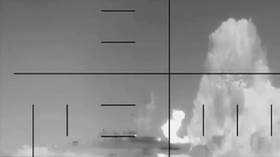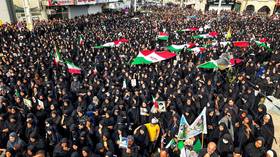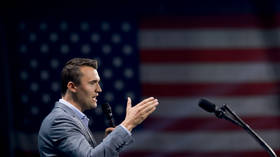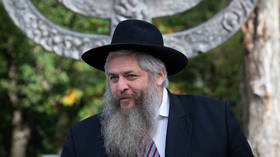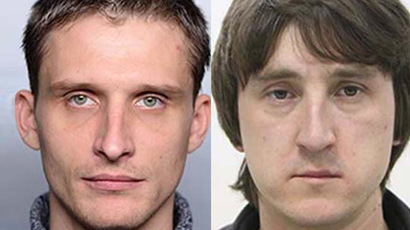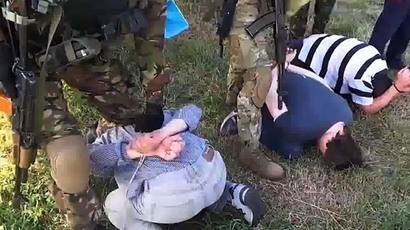Ukraine dangerously interfering with press freedom – Human Rights Watch
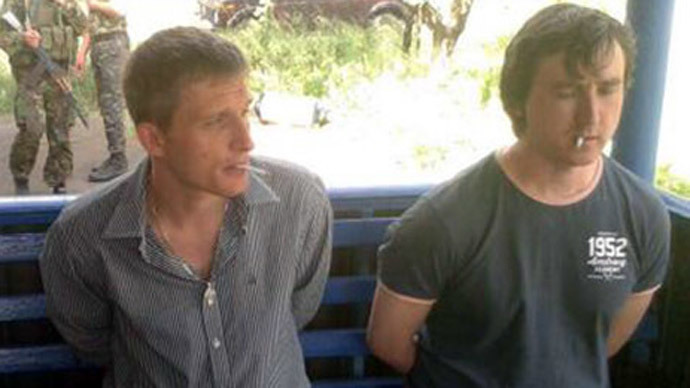
Human Rights Watch (HRW) says Ukraine’s military and security services are “dangerously interfering with press freedom” by detaining journalists working with Russian news agencies and denying others entry into the country.
The New-York-based advocacy group called on Ukrainian authorities to “immediately” explain the recent detention of three journalists, one of whom has since been released.
“We’re deeply worried about the fate and whereabouts of these three journalists,” said Rachel Denber, deputy Europe and Central Asia director at Human Rights Watch. “Detaining journalists and then failing to provide information on what’s happening to them or to respect their due process rights are serious violations that have to end.”
The NGO said they should either be promptly released, or if there is evidence that they were involved in illegal activity, they should immediately be brought before a judge so they can be charged and released pending further investigation.
The group further called on authorities in Kiev to make public the legal grounds under which the journalists are being held. Apart from being given access to lawyers and consular officers, all those detained should be given full protection under the law.
“Failure to provide information on the whereabouts and fate of anyone deprived of their liberty by agents of the state, or those acting with its acquiescence, may constitute an enforced disappearance,” HRW warned.
On Tuesday, Graham Phillips, a UK citizen who contributes to RT as a freelance journalist, was detained by the Ukrainian National Guard at a checkpoint outside the eastern city of Mariupol on suspicion of being a spy.
After being held for 36 hours, Phillips was released by security forces after being transferred to Zaporozhye, where he spent the night. Ukraine's authorities did not charge him with anything, he says.
“All my work in order, no charges, no deportation, no one laid a hand on me in anger, Ukrainian authorities treated me fairly,” Phillips said.
Philips said that upon being stopped by troops in Mariupol, the situation “escalated” after they saw he was working for RT.
“They started phoning people and then I was detained. I had my things taken off me and interrogated quite thoroughly,” he said.
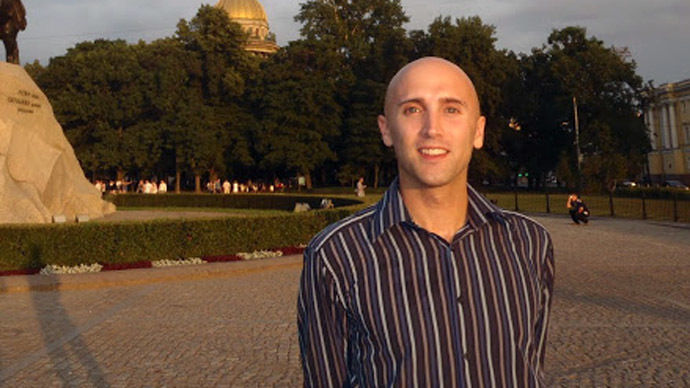
“RT’s reporting may not be well received by some in Kiev, but it is totally unacceptable and a blatant violation of freedom of expression to arrest journalists simply for the content or tone of their reporting,” Denber said. “Worse still is to turn an arbitrary detention into an enforced disappearance by concealing all information about where the journalist is and what’s happening to him.”
Writing for Buzzfeed, Max Seddon recently wrote that in a conflict characterized by “danger, trauma, and paranoia,” authorities in Kiev “have been working to remove Russian TV from the country entirely and increasingly treats Russian state journalists as enemy combatants.”
#SaveOurGuys
While Philips was released, the fate of two other Russian nationals working for LifeNews media outlet remains unknown.
On Sunday, LifeNews reporter Oleg Sidyakin and cameraman Marat Saichenko were detained on Sunday soon after they released a video which allegedly showed a UN-marked helicopter being used by the Ukrainian army in a military operation in the eastern regions.
On Monday, the deputy secretary of Ukraine’s National Security and Defense Council (SNBO) said the journalists were being investigated on the charges of “aiding the terrorist groups.”
The same day a video merged showing the Ukrainian troops crudely forcing the Russian journalists to their knees.
An SBU spokeswoman claimed that the men were not engaged in journalism in Ukraine but were rather “accompanying terrorists and broadcasting their unlawful actions.” She also said that Sidyakin and Saichanko had admitted to entering Ukraine without any media accreditation and had told border that police that the purpose of their visit was to attend a concert. The spokeswoman declined to provide any information on whether the men had been formally detained, and if so, what is their status.
Russian President Vladimir later called the accusations against the journalists “nonsense and delirium.”
Following their detention, an online campaign #SaveOurGuys was launched in a bid to see the journalists set free.
#MillaJovovich, born in #Kiev, at #Cannes: #SaveOurGuys #FreeOlegSidiakin#MaratSaichenkopic.twitter.com/VutiAdLGQ8
— rui borges (@homo_viator) May 22, 2014
A lawyer representing the pair has since filed a missing persons report with Ukraine’s Interior Ministry.
HRW called on Ukrainian authorities to “immediately clarify the whereabouts of Saichenko and Sidyakin” and state unequivocally whether “lawful charges are being pursued against them,” Human Rights Watch said.
The group said failing to do so would implicit authorities in an act of “enforced disappearance,” which is “prohibited under international law” and violates “multiple human rights obligations.” The group notes that arbitrary detention and denial of freedom of expression contravention the European Convention on Human Rights and the International Covenant on Civil and Political Rights, both of which Ukraine is party to.
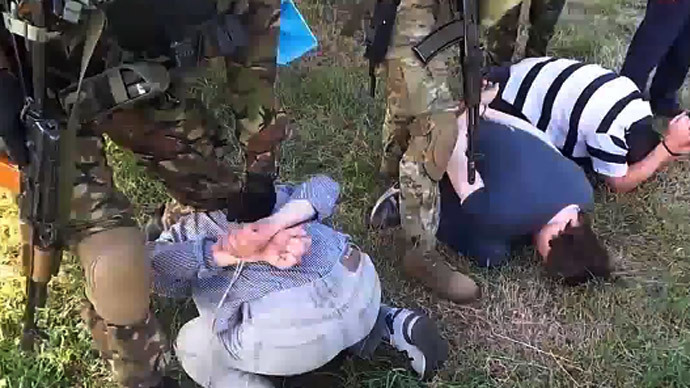
Earlier, The Organization for Security and Co-operation in Europe (OSCE) urged authorities in Kiev to release the Russian journalists captured in eastern Ukraine, saying that intimidation and obstruction of media working in the country is “unacceptable.”
In a letter, the OSCE’s representative on freedom of the media, Dunja Mijatovic called on Ukrainian security forces to “stop intimidating and threatening members of the media,” stressing that journalists must be allowed to do their jobs without fearing for their security.
Banned in UA
Meanwhile, on Tuesday RT Arabic’s news crew was denied entry by Ukrainian border police after arriving in Kiev to cover the upcoming presidential election.
“At the border control they immediately took our passports. An hour later, we – one by one – were invited to a special room for an interview,” RT’s Anna Knishenko said at the time.
Following individual interviews, border guards gave the journalists papers in Ukrainian stating that they were denied entry since they could not properly explain the purpose of their visit, she said. The journalists, however, had in fact been accredited by the Ukrainian Central Election Commission, said Knishenko.
Human Rights Watch spoke with Knishenko, along with four other journalists from independent news outlets – including Kommersant, Rosbalt, and Russian Reporter – who were all summarily denied entry to Ukraine under similar circumstances between March and May.
“While Ukraine has a right to control who enters its country, refusal of entry on arbitrary or discriminatory grounds such as nationality or political opinion is inconsistent with the exercise of that right under international human rights law,” HRW said.
Mijatovic had previously condemned the harassment of journalists in Ukraine, noting that on May 15-16 a host of Russian journalists from Channel One, NTV, TVC and Zvezda channels were denied entrance at the country’s border despite “all of them have been accredited by the Ukrainian authorities for covering the presidential elections.”
Denber also called on Kiev to stop clamping down on the press.
“The Ukrainian authorities need to stop the arbitrary detention of journalists and provide information on what has happened to those already detained,” Denber said. “And the Ukrainian authorities should stop blocking journalists from covering the events in Ukraine, including the upcoming election.”





